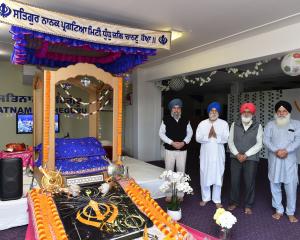Young adults working long hours are more than three times as likely to take to the bottle, a study from Christchurch-based University of Otago postdoctoral fellow Dr Sheree Gibb has concluded.
Dr Gibb said the research suggested there was some truth in the corporate adage of "work hard, play hard", after her study found there was a higher risk of alcohol abuse among young adults working at least 50 hours a week.
Dr Gibb's research used data from the Christchurch Health and Development Study, which followed more than 1000 people born in Christchurch in 1977 through to age 30.
Responses from the participants at ages 25 and 30 showed a significant association between longer working hours and alcohol-related problems.
There were several possible reasons, Dr Gibb said.
Hard-working employees might be turning to alcohol to alleviate a busy and stressful working lifestyle, she said.
In some workplaces, there could be an "ingrained culture" where workmates were more likely to socialise with colleagues or clients, while in some industry sectors there was not always a clear delineation about when work finished, Dr Gibb said.
The hospitality sector was one example where it was the norm to drink after hours, she said.
Corporate workers were sometimes required to socialise with clients as part of their duties, often outside normal working hours, she said.
Longer working hours were associated with more serious problems, such as heavy drinking, more instances of drinking and a dependence on alcohol.
People who worked 50 hours or more a week on average were up to 3.3 times more likely to have alcohol-related problems than those who were not working, and about 1.5 times more likely to have alcohol-related problems than those who worked between 30 and 49 hours a week.
Both men and women working longer hours were at a higher risk of abusing alcohol, Dr Gibb said.
The "good news for most" was that studies showed alcohol problems were more likely to decrease once someone turned 30, as they became more mature and settled down, Dr Gibb said.
The results suggested more consideration could be given by employers to promoting policies or programmes which were targeted at employees working long hours, with the aim of reducing rates of alcohol-related problems among this group, Dr Gibb said.
Work hard, party hard?
• People working 50 hours or longer a week are up to 3.3 times more likely to have alcohol-related problems.
• Both men and women working longer hours were at a higher risk of abusing alcohol.
Source: University of Otago












